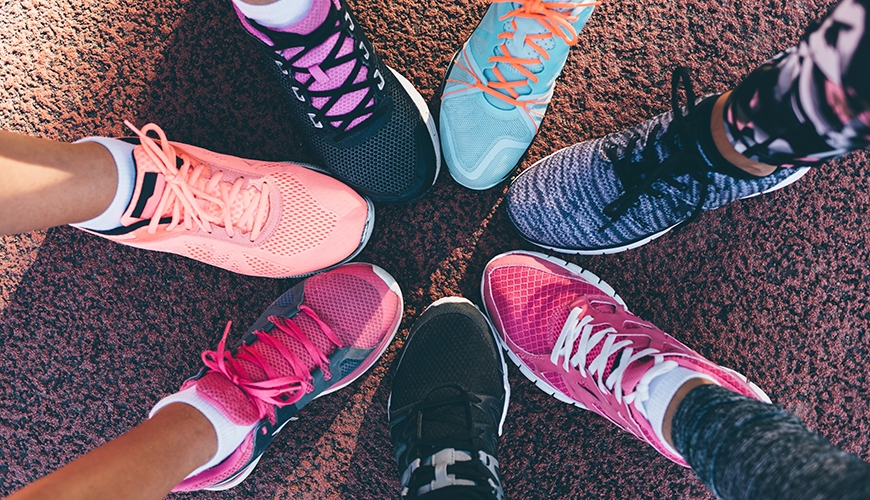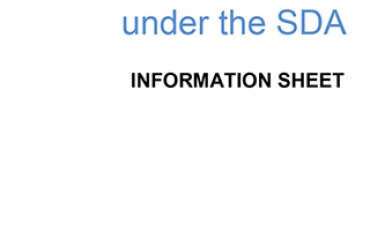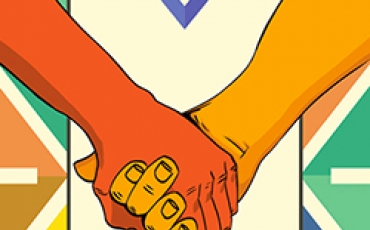Guidelines - Including transgender and gender diverse people in sport

Introduction
These Guidelines have been developed by the Australian Human Rights Commission (the Commission), in partnership with Sport Australia and the Coalition of Major Professional and Participation Sports (COMPPS), to provide guidance to sporting organisations on promoting the inclusion and participation of transgender and gender diverse people in sport.
The Guidelines provide:
- information about the operation of the Sex Discrimination Act 1984 (Cth) (the Act) in relation to:
- unlawful and permissible discrimination on the basis of sex and gender identity
- sexual harassment
- victimisation
- practical guidance for promoting inclusion in line with fundamental human rights-based principles:
- equality
- participation in sport
- freedom from discrimination and harassment
- privacy.
Sporting organisations should ensure they are familiar with sections 5 and 6 of the Guidelines which outline how inclusion can be promoted through:
- leadership
- inclusion policies
- codes of conduct
- uniforms
- facilities
- approaches to the collection and use of personal information.
Sporting organisations may also wish to consider the guidance published by the Victorian Equal Opportunity & Human Rights Commission on the inclusion of transgender and gender diverse people in sport.
The Commission has also developed a Reflective Practice Framework to assist Sport Australia and COMPPS monitor the implementation and impact of the Guidelines.
Forewords
Australian Human Rights Commission
Participation in sport is a human right.1 We are all born free and equal in dignity and rights.2
Sport provides physical, social and mental health benefits. This makes it essential that everyone has the opportunity to participate in sport, regardless of their sex or gender identity.
When Sport Australia first approached the Australian Human Rights Commission (the Commission) we welcomed this opportunity to partner with them and the Coalition of Major Professional and Participation Sports (COMPPS) 3 on the development of these Guidelines for the inclusion of transgender and gender diverse people in sport (the Guidelines). The Commission thanks them for their commitment to promoting and facilitating inclusion in sport.
Just as we understand and accept the importance of a person being able to bring their ‘whole self’ to work, a person must also be able to bring their ‘whole self’ to any sport they participate in.
Sport 2030, Australia’s national sport plan, makes clear that ‘successful societies are inclusive societies’.4 Unfortunately transgender and gender diverse people are sometimes excluded from sport, or may experience discrimination and sexual harassment when they do participate. Through the targeted consultations we held to inform the development of these Guidelines we heard from a broad range of sporting stakeholders, including transgender and gender diverse athletes. While some reported positive experiences of inclusion, others described how they had been excluded from the sports they loved because of their sex or gender identity.
Some spoke of disengaging from sport during their transition journey because of their concern about how their team mates would treat them. We also heard about what exclusion from sport might mean for children who are transgender or gender diverse. The quotes that appear throughout these Guidelines are drawn from our consultations.
Sporting organisations indicated they are commited to ensuring the rights of all players are respected. They expressed a desire for information and guidance about how they can make their sports inclusive of transgender and gender diverse players.
The federal Sex Discrimination Act 1984 (Cth) (the Act) prohibits unlawful discrimination on the basis of sex and gender identity in certain areas of public life. The Act has recognised the non-binary nature of gender identity since 2013. The Guidelines provide information on the operation of the Act, and practical guidance on how sporting organisations, their staff and volunteers can promote the inclusion of transgender and gender diverse people in line with human rights-based principles.
I look forward to sporting organisations using these Guidelines to ensure that their policies and practices comply with the Act, and are designed to maximise the inclusion of transgender and gender diverse people in their sport.
Kate Jenkins
Sex Discrimination Commissioner
‘Culture and leadership are crucial—it is leadership that makes an organisation’s culture safe.’ 5
Sport Australia
Our vision is for Australia to be the world’s most active sporting nation, known for its integrity and sporting success and world leading sports industry. Underpinning this vision is the belief that every Australian, at all stages of their life regardless of gender, sexual orientation, ability, cultural background or ethnicity should be able to participate in sport and physical activity in a welcoming way.
Inclusive sport is a priority for Sport Australia, and so we are proud to have partnered with the Commission and COMPPS on the development of these Guidelines.
It is important that sporting bodies, from local clubs through to national sporting organisations, reflect the diversity of the communities of which they are a part and that together, we ensure every person is treated with respect and dignity and protected from discrimination.
These Guidelines provide practical assistance on how to create and promote an inclusive environment in Australian sport for transgender and gender diverse people. The Guidelines are relevant to all sporting organisations, from national sporting bodies, to state and local associations.
Research among gender diverse young people tells us that mental health and wellbeing concerns for this group are substantial.6 So the power of sport to heal and reconcile, and allow us to better understand each other’s differences, has never been more important.
‘If you are going to exclude someone, you need to make sure you have done everything possible to show why that is and give that person a chance to be included.’
Truly inclusive sport cannot be accomplished by a few; it must be done in partnership. Everyone across the sport sector has a part to play in being more inclusive, and there are already many great examples in sport of things that everyone can do. But there is still a long way to go. These Guidelines are designed to help us get there.
I urge all sports to make themselves familiar with the Guidelines. Strong leadership in their implementation is critical to ensuring sporting organisations in Australia welcome all people, regardless of their sex or gender identity.
Kate Palmer
Chief Executive Officer
The Coalition of Major Professional and Participation Sports (COMPPS)
The Coalition of Major Professional and Participation Sports (COMPPS) is pleased to partner with the Commission and Sport Australia to develop these important Guidelines.
COMPPS is made up of the following member organisations:
- Australian Football League
- Cricket Australia
- Football Federation Australia
- National Rugby League
- Netball Australia
- Rugby Australia
- Tennis Australia.
Over 9 million people participate in COMPPS sports, through 16,000 clubs. As the custodians and national governing bodies of their sports, COMPPS members play an important leadership role in promoting the benefits of participation in sport for individuals and communities. Partnering to develop the Guidelines demonstrates the commitment of COMPPS members to the inclusion of transgender and gender diverse people in sport.
The Guidelines provide a significant opportunity for all of those involved in Australian sports—from grassroots participants and clubs to governing bodies—to reflect on how they can facilitate diversity and inclusion.
COMPPS encourages all of its members to take active steps to welcome and encourage transgender and gender diverse people to participate in their sports.
David Gallop AM
Chairman
1 United Nations Educational, Scientific and Cultural Organization, International Charter of Physical Education, Physical Activity and Sport (21 November 1978) art 1; Universal Declaration of Human Rights, GA Res 217A (III), UN GAOR, 3rd sess, 183rd plen mtg, UN Doc A/810 (10 December 1948) art 24; International Olympic Committee, Olympic Charter (entered into force 9 October 2018) 11.
2 Universal Declaration of Human Rights, GA Res 217A (III), UN GAOR, 3rd sess, 183rd plen mtg, UN Doc A/810 (10 December 1948) art 1.
3 The members of the Coalition of Major Professional and Participation Sports (COMPPS) are the Australian Football League, Rugby Australia, Cricket Australia, Football Federation Australia, the National Rugby League, Netball Australia, and Tennis Australia.
4 Department of Health, ‘Sport 2030: Participation, Performance, Integrity, Industry’ (2018) 21.
5 All of the quotes included in the Guidelines are from consultation participants.
6 Caroline Symons et al, 'The Impact of Homophobic Bullying during Sport and Physical Education Participation on Same-Sex-Attracted and Gender-Diverse You Australians' Depression and Anxiety Levels ("The Equal Play Study")' (March 2014).



